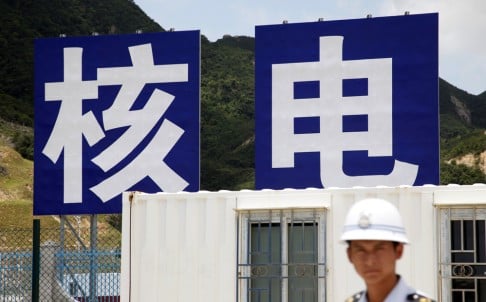(Easybourse.com) Selon une étude réalisée par la Chambre de Commerce Américaine en Chine, qui inclue 3800 membres de 1000 entreprises, les autorités chinoises cibleraient sciemment les sociétés étrangères dans leurs enquêtes anti-monopoles.
L’étude a été réalisée sur la base d’un questionnaire adressé à 164 membres entre le 22 et le 28 août.
60% des répondants estiment que les entreprises étrangères sont moins bien traitées en Chine qu’auparavant. Ils étaient 41% en 2013 alors que 365 membres avaient été interrogés.
Les réformes promises l’année dernière en vue de libéraliser l’économie ont tardé à voir le jour. Parallèlement, l’environnement s’est détérioré.
49% sont d’avis que les sociétés étrangères sont particulièrement sélectionnées dans les affaires en rapport avec des problèmes de concurrence et de corruption. Ils étaient 40% à le croire en 2013.
25% ont indiqué ne pas être certains ou ne pas savoir exactement ce qu’il en était. 26% ont signalé ne pas partager le même sentiment.
Selon le président de la Chambre Greg Gilligan l’évolution de la situation au sein de la deuxième puissance mondiale alimente de plus en plus une crainte chez les entreprises américaines. Il y aurait un risque réel que la Chine, en s'acharnant dans cette direction, finisse par perdre de manière permanente son attractivité.
Une douzaine de sociétés étrangères-américaines, allemandes, japonaises-ont été inquiétées dans une affaire de pratiques monopolistiques ou de fixation de prix déloyaux. Certaines de ces sociétés ont dû s’acquitter de lourdes amendes tandis que d’autres ont été contraintes à réduire leurs prix. Tel a été notamment été le cas d’Audi, de Bayerische Motoren Werke, de Mercedes-Benz, de Jaguar Land Rover, de Chrysler, de Toyota Motor et de Honda Motor.
D’après Lester Ross, vice président de la Chambre, les régulateurs chinois utilisent des moyens ''extra-juridiques'' pour conduire leurs investigations. Ces derniers se basent dans bien des cas sur des dispositions vagues ou non spécifiées dans la réglementation.
L’objectif recherché serait de favoriser la montée en puissance des compagnies domestiques dans certains secteurs phares comme la pharmacie, les appareils médicaux, les équipements technologiques et automobiles.
Dans une lettre adressée au Secrétaire d’Etat John Kerry et au Secrétaire du Trésor, Jacob Lew, la Chambre de Commerce a demandé à Washington de se rapprocher de Pékin pour discuter de la question de l’application des règles liées à la concurrence.
Le mois dernier, la Chambre de Commerce européenne avait accusé les autorités de la concurrence chinoises d’user de pouvoirs abusifs par des tactiques d’intimidation, incluant l’interdiction pour les sociétés d’être accompagnées par leurs propres avocats aux auditions.
Xu Kunlin, responsable du bureau chargé de la supervision des prix et de l'application de la réglementation anti monopole au sein de la Commission nationale des réformes et du développement, la National Development Reform Commission (NDRC), a qualifié les accusations faites infondées. « Certaines des enquêtes de la NDRC visent des multinationales étrangères mais cela ne signifie pas que nous les ciblons ».
«Les mesures anti monopole adoptées en Chine sont transparentes, justes et conformes à la réglementation existante», a commenté Qin Gang, porte parole du ministère des affaires étrangères.
60% des répondants estiment que les entreprises étrangères sont moins bien traitées en Chine qu’auparavant. Ils étaient 41% en 2013 alors que 365 membres avaient été interrogés.
Les réformes promises l’année dernière en vue de libéraliser l’économie ont tardé à voir le jour. Parallèlement, l’environnement s’est détérioré.
49% sont d’avis que les sociétés étrangères sont particulièrement sélectionnées dans les affaires en rapport avec des problèmes de concurrence et de corruption. Ils étaient 40% à le croire en 2013.
25% ont indiqué ne pas être certains ou ne pas savoir exactement ce qu’il en était. 26% ont signalé ne pas partager le même sentiment.
Selon le président de la Chambre Greg Gilligan l’évolution de la situation au sein de la deuxième puissance mondiale alimente de plus en plus une crainte chez les entreprises américaines. Il y aurait un risque réel que la Chine, en s'acharnant dans cette direction, finisse par perdre de manière permanente son attractivité.
Une douzaine de sociétés étrangères-américaines, allemandes, japonaises-ont été inquiétées dans une affaire de pratiques monopolistiques ou de fixation de prix déloyaux. Certaines de ces sociétés ont dû s’acquitter de lourdes amendes tandis que d’autres ont été contraintes à réduire leurs prix. Tel a été notamment été le cas d’Audi, de Bayerische Motoren Werke, de Mercedes-Benz, de Jaguar Land Rover, de Chrysler, de Toyota Motor et de Honda Motor.
D’après Lester Ross, vice président de la Chambre, les régulateurs chinois utilisent des moyens ''extra-juridiques'' pour conduire leurs investigations. Ces derniers se basent dans bien des cas sur des dispositions vagues ou non spécifiées dans la réglementation.
L’objectif recherché serait de favoriser la montée en puissance des compagnies domestiques dans certains secteurs phares comme la pharmacie, les appareils médicaux, les équipements technologiques et automobiles.
Dans une lettre adressée au Secrétaire d’Etat John Kerry et au Secrétaire du Trésor, Jacob Lew, la Chambre de Commerce a demandé à Washington de se rapprocher de Pékin pour discuter de la question de l’application des règles liées à la concurrence.
Le mois dernier, la Chambre de Commerce européenne avait accusé les autorités de la concurrence chinoises d’user de pouvoirs abusifs par des tactiques d’intimidation, incluant l’interdiction pour les sociétés d’être accompagnées par leurs propres avocats aux auditions.
Xu Kunlin, responsable du bureau chargé de la supervision des prix et de l'application de la réglementation anti monopole au sein de la Commission nationale des réformes et du développement, la National Development Reform Commission (NDRC), a qualifié les accusations faites infondées. « Certaines des enquêtes de la NDRC visent des multinationales étrangères mais cela ne signifie pas que nous les ciblons ».
«Les mesures anti monopole adoptées en Chine sont transparentes, justes et conformes à la réglementation existante», a commenté Qin Gang, porte parole du ministère des affaires étrangères.
